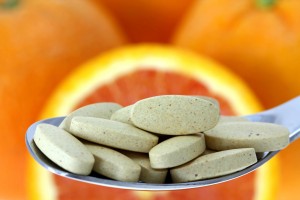-
Multivitamins and Supplements: To Take or Not to Take?
"People ask me this question quite often: 'Should I be taking certain vitamins and supplements?' And the answer is, quite honestly, 'It depends,'" says Anne Harguth, registered dietitian at Mayo Clinic Health System.
According to the Dietary Guidelines for Americans, you should meet your nutritional needs primarily through diet. For some people, however, taking certain supplements may be the best way to get nutrients they may be lacking through diet. So, Harguth cautions it’s important to understand the exact impact supplements will have on your body before getting out your wallet, .
Whole food is not to be replaced by supplements, as supplements cannot replicate all the health benefits of whole foods. For example, fruits and vegetables carry many different nutrients that provide health benefits to the human body. So, depending on your diet and current physical state, spending money on supplements may not be necessary. Listed below are Mayo Clinic's three main benefits to whole foods vs. supplements:
Greater nutrition. Whole foods are complex, containing a variety of the micronutrients your body needs — not just one. An orange, for example, provides vitamin C plus some beta carotene, calcium and other nutrients. It's likely these compounds work together to produce their beneficial effect.
Essential fiber. Whole foods, such as whole grains, fruits, vegetables and legumes, provide dietary fiber. Most high-fiber foods are also packed with other essential nutrients. Fiber, as part of a healthy diet, can help prevent certain diseases, such as type 2 diabetes and heart disease, and it can also help manage constipation.
Protective substances. Whole foods contain other substances important for good health. For example, fruits and vegetables contain naturally occurring substances called phytochemicals, which may help protect you against cancer, heart disease, diabetes and high blood pressure. Many are also good sources of antioxidants — substances that slow down oxidation, a natural process that leads to cell and tissue damage.
Vitamin and mineral supplementation is recommended for some people with certain conditions. Supplements may be appropriate for people who:
- Don't eat well or consume less than 1,600 calories a day.
- Are a vegan or a vegetarian who eats a limited variety of foods.
- Don't obtain two to three servings of fish a week. If you have difficulty achieving this amount, some experts recommend adding a fish oil supplement to your daily regimen.
- Are a woman who experiences heavy bleeding during your menstrual period.
- Have a medical condition that affects how your body absorbs or uses nutrients, such as chronic diarrhea, food allergies, food intolerance, or a disease of the liver, gallbladder, intestines or pancreas.
- Have had surgery on your digestive tract and are not able to digest and absorb nutrients properly.
"To sum it up, if you're a pretty healthy person with a well-balanced diet containing a wide variety of foods — including fruits, vegetables, reduced fat dairy products, whole grains, legumes, lean meats and fish — you most likely don’t need supplements," adds Harguth. "Talk to your health care team and dietitian if you have questions or concerns."







